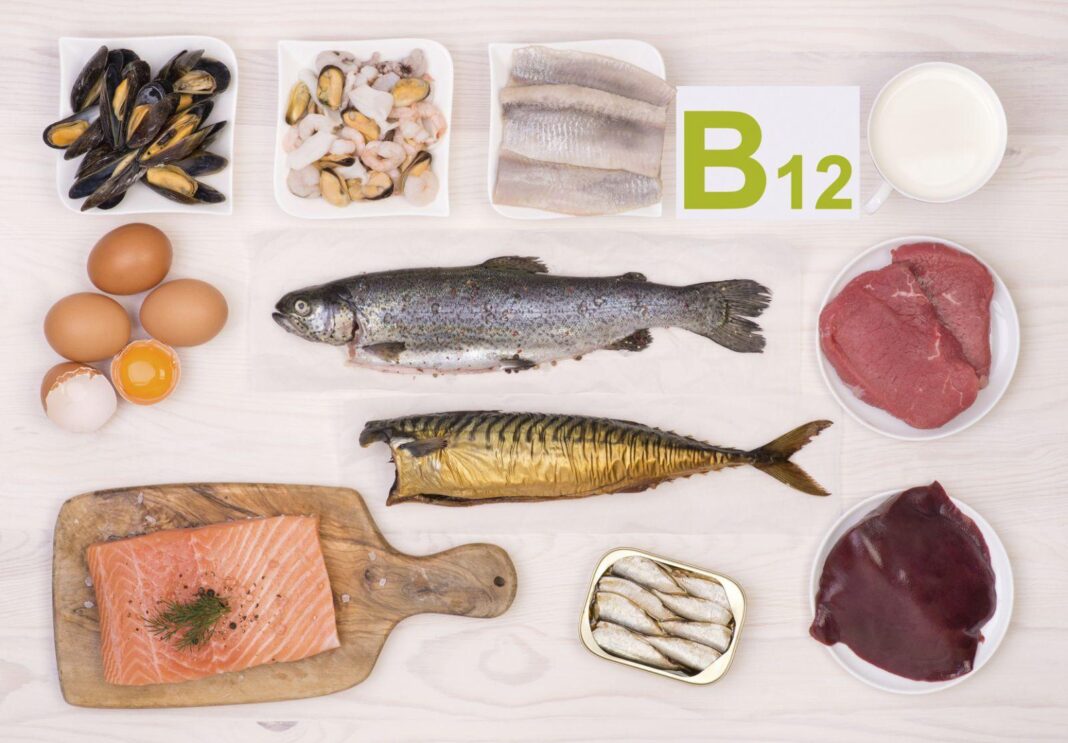In the vibrant tapestry of nutrition,few nutrients shine as brightly—or evoke as much curiosity—as Vitamin B12. Touted for its pivotal role in energy metabolism and cognitive function,this essential vitamin is especially meaningful within the context of vegan diets,where its natural sources may be scarce. As plant-based living continues too find its footing in an increasingly health-conscious society, understanding the nuances of B12 absorption and its implications for energy levels becomes crucial. This article delves into the multifaceted world of Vitamin B12, exploring its contributions to vitality, its challenges for those who choose a vegan lifestyle, and the best practices for ensuring adequate absorption. Join us on a journey that unlocks the secrets of this vital nutrient—one that fuels not just the body, but the mind, too.
Understanding the Role of Vitamin B12 in Energy Production
Vitamin B12, also known as cobalamin, plays a crucial role in the body’s energy metabolism. It is basic in the conversion of food into energy, specifically in the metabolism of fats and proteins.This vitamin assists in the synthesis of red blood cells, which are essential for oxygen transport throughout the body. without adequate levels of B12, energy production could be compromised, leading to feelings of fatigue and weakness. Some key functions of vitamin B12 in energy production include:
- Facilitating Mitochondrial Function: B12 is vital for the proper functioning of mitochondria, the powerhouse of cells.
- Supporting Energy Release: It helps in converting carbohydrates into glucose, the primary energy source for the body.
- Enhancing red blood Cell Formation: Sufficient B12 levels ensure that the body can produce healthy red blood cells,preventing anemia.
A deficiency in vitamin B12, which is more common in individuals following a vegan diet, can result in serious consequences, including decreased energy levels and neurological issues. As plant-based foods usually lack this essential nutrient,supplementation or fortified foods become paramount. Ensuring that yoru diet is rich in vitamin B12 might involve consuming fortified cereals, plant-based milks, or considering B12 supplements. The following table summarizes various food sources and their B12 content:
| Food Source | B12 Content (µg per serving) |
|---|---|
| Fortified Almond Milk (1 cup) | 1.2 |
| Fortified Nutritional Yeast (1 tbsp) | 2.4 |
| Fortified Breakfast Cereal (1 serving) | 4.5 |
| B12 Supplement (1 tablet) | 25 |

Navigating Vegan Diets: ensuring Adequate B12 Intake
Navigating through a vegan diet can be a rewarding experience, but it’s crucial to be mindful of specific nutrients, particularly Vitamin B12, which is essential for energy production and overall health. Since B12 is naturally found in animal products, those following a plant-based lifestyle must actively seek trusted sources or supplements. Here are some effective strategies to ensure an adequate intake of this vital nutrient:
- Fortified Foods: Look for plant-based milk, breakfast cereals, and nutritional yeast that are fortified with Vitamin B12.
- Supplements: Consider B12 supplements, which come in various forms including tablets, sublingual lozenges, and sprays.
- Regular Blood Tests: Monitor your B12 levels through regular blood tests to catch any deficiencies early.
Understanding the type of B12 is equally vital,as not all forms are equally absorbable. Methylcobalamin and adenosylcobalamin are more bioavailable forms, while cyanocobalamin, frequently enough found in supplements, is effective provided it’s converted properly in the body. Below is a simple comparison of these forms:
| Type of B12 | Form | Absorption Rate |
|---|---|---|
| Methylcobalamin | Active form | High |
| Adenosylcobalamin | Active form | High |
| Cyanocobalamin | Supplement form | Moderate (requires conversion) |

maximizing Absorption: Tips and Strategies for Optimal Benefits
To effectively boost your intake and utilization of Vitamin B12, consider the following strategies that enhance absorption.First and foremost,include fortified foods in your diet,as many vegan options are available,such as plant-based milks,breakfast cereals,and nutritional yeast. These fortified items not only provide a reliable source of B12 but also deliver a myriad of other essential nutrients. Additionally, maintaining a healthy gut microbiome can significantly impact vitamin absorption. This means incorporating probiotic-rich foods like fermented vegetables, tempeh, or miso into your meals to support digestive health.
While the sources are essential, the timing of consumption can play a key role, too. For optimal benefits, consider the following tips:
- Split B12 intake: Distributing your B12 consumption throughout the day can improve overall utilization.
- pair with vitamin C: Combining B12 sources with vitamin C-rich foods may enhance its absorption.
- Avoid excess caffeine: Consuming high amounts of caffeine can possibly interfere with vitamin absorption.
Lastly,regular blood tests can definitely help monitor B12 levels,ensuring that your dietary strategies are effective in preventing deficiency.By incorporating these practices, you can significantly enhance the absorption of Vitamin B12, supporting energy levels and overall well-being.

signs of Deficiency: Recognizing the Warning Signals for Your Health
Recognizing the signs of vitamin B12 deficiency is crucial, especially for those following a vegan diet, as this essential nutrient is predominantly found in animal products. Common symptoms to be aware of include:
- Fatigue or Weakness: A prevalent feeling of tiredness that doesn’t improve with rest.
- Pale or Jaundiced Skin: A noticeable change in skin color can indicate underlying issues.
- Nerve Problems: Tingling or numbness in hands and feet, often due to nerve damage.
- Cognitive Difficulties: Memory lapses or concentration issues may arise.
If you experience several of these symptoms, it may be time to assess your dietary intake of B12. Given that proper absorption is essential, it’s worth noting factors that can hinder your body’s ability to utilize this vitamin effectively. Some of these factors include:
| Factor | Impact on Absorption |
|---|---|
| Gastric Issues | Stomach acid helps release B12 from food; low levels can impair absorption. |
| Intestinal Health | Conditions like Crohn’s disease can affect B12 absorption in the gut. |
| Aging | Older adults may produce less stomach acid, reducing absorption. |
| Medication Interactions | Certain medications can inhibit B12 absorption, notably proton pump inhibitors. |
In Summary
navigating the intricate world of Vitamin B12 is essential for anyone, especially those embracing a vegan lifestyle. While this vital nutrient plays a pivotal role in energy production and overall well-being,its absorption can present challenges that are often overlooked. By incorporating fortified foods, understanding the nuances of B12 sources, and considering supplements when necessary, individuals can ensure thay meet their nutritional needs without compromise. As we continue to explore the relationship between diet and vitality,let us celebrate the power of knowledge in nurturing our bodies—whether through the vibrant world of plant-based eating or the complex needs of our unique biology. Remember,a well-informed approach is the key to harnessing the full benefits of Vitamin B12,fueling both your energy and your journey towards a healthier lifestyle.




